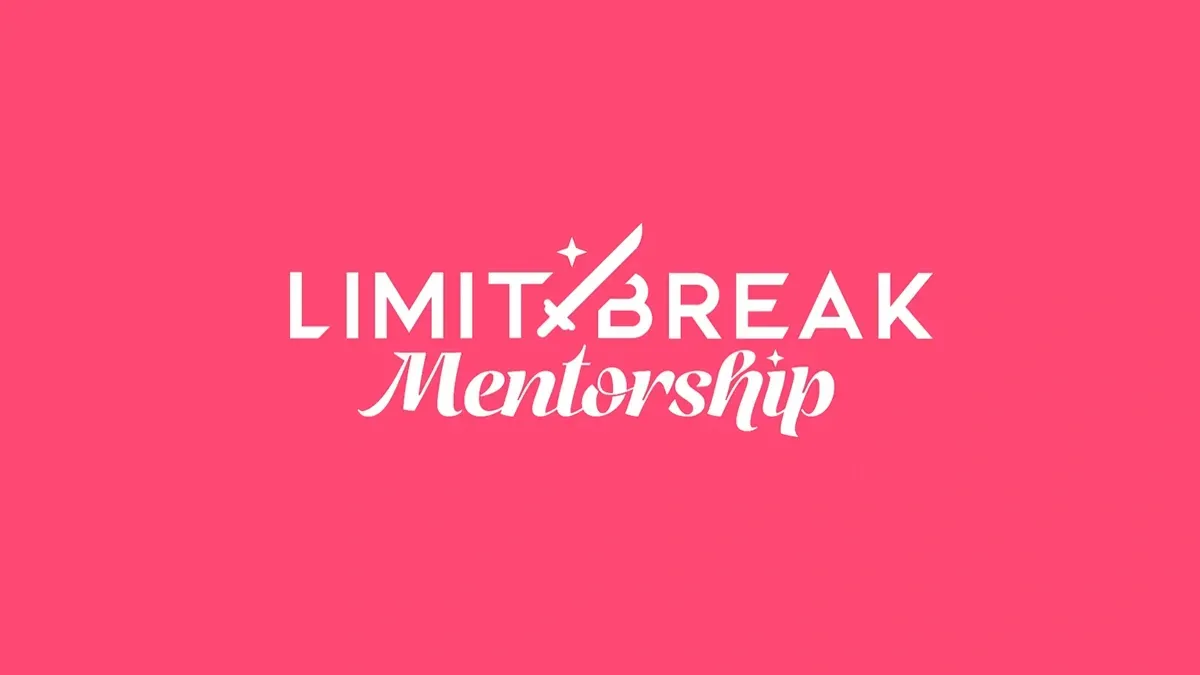CEOS ARE NO LONGER TRUSTED… A GUIDE TO REINVENTION
Caroline Stokes is described as a leadership strategist for the ‘5th Industrial Revolution’. And some of you may know her from her days working in the games industry at Sony, where she helped to launch the original PlayStation, plus Virgin Interactive and Nokia. In more recent years, she’s evolved from executive headhunter to an authority on psychological and strategic leadership reinvention via her executive coaching business FORWARD – and she has just authored a new book - AfterShock to 2030: A CEO’s Guide to Reinvention in the Age of AI, Climate, and Societal Collapse.
I’ve had the pleasure of talking to Caroline about her background, her work and the blueprint her new book offers to the progressive and forward-thinking C-Suite…

After senior roles in games working at the likes of Sony PlayStation, Virgin, and Nokia, what pivotal moment led you to found FORWARD and move into executive coaching?
There wasn’t just one moment. At Virgin, Sony PlayStation, and Nokia, I kept seeing the same pattern: brilliant people, bold visions, brilliant tech and product – but often misaligned communication and collaboration systems to reach the goals without collateral damage. Often, teams were siloed and weren’t communicating in the way management and employees hoped. Often, intentions were misunderstood which created conflict. Collaboration struggled because no one had been trained to work with each other’s unique operating systems or to listen carefully to create optimal outcomes. What was missing? Systemic coaching. Team coaching. Rewiring how people relate, build trust, and align in fast-moving, high-pressure environments. Initially, I started FORWARD to combine executive search and coaching. I went all-in on Executive Coaching after the pandemic. At the time, I had just placed a CEO, relocating them from LA to Barcelona. Then, when I could see the pandemic disruption unfolding, I felt an urgency to double down. I pursued two executive programs at MIT, focused on Business Sustainability and AI for Business Strategy to deepen my systems-level understanding of what was coming. Thousands of hours of experience, research and applied learning have been synthesised into my book AfterShock to 2030: A CEO’s Guide to Reinvention in the Age of AI, Climate, and Societal Collapse – a playbook for leaders ready to reinvent themselves and their systems in real time.
You’re certified as both an executive coach and EQ-i 2.0 practitioner – when did emotional intelligence become central to your work, and why does it matter so much in leadership today?
The emotional intelligence system fully clicked for me about 12 years ago during executive coaching school, where I was immersed in the neuroscience of leadership. I had this moment of clarity: everything is emotional. If leaders don’t understand how their emotional responses shape their actions – especially under pressure or success – they’re reactive, not leading and finding solutions. We throw around the word ‘resilience’ in business, but real resilience doesn’t come from suppressing emotion or pretending to be tough. It comes from having tools to interpret what’s happening inside – what I call our ‘internalities’ – when faced with friction: a board confrontation, a team conflict, or a crisis no one saw coming. That’s why emotional intelligence became foundational to my work. I pursued formal training in EQ-i 2.0, earned my PCC executive coaching credential, and became certified in The Leadership Circle, one of the most powerful diagnostics I know. It doesn’t just show what you do – it helps you understand why, and what’s getting in your way. Today’s leaders aren’t just managing teams – they’re navigating systems, AI governance, climate risk, and existential uncertainty. Your ability to self-regulate under pressure directly affects how effectively you lead through complexity. When emotional intelligence is paired with strategic and systems awareness you can move faster. You make clearer decisions, lead with steadiness, and communicate with coherence across every level of the system. People often think emotional intelligence is a luxury. It’s not. As I write in AfterShock to 2030, even the military uses coaches to regulate emotions under extreme stress. And we’re living in exactly those kinds of conditions now. Understanding your emotional operating system isn’t a soft skill – it’s a survival skill.
You’ve played roles as coach, advisor, and ‘narrative reinvention’ partner – what does the latter entail, and why do narrative and presence matter at the C-suite level?
Narrative reinvention isn’t about spinning a better story. It’s about rewriting the internal operating system – because what got you here won’t get you where the world is going. Most leaders I work with are still running legacy code: stories about dominance, control, heroism, and stability that worked in the ‘90s and early 2000s. But those narratives are breaking under the weight of today’s reality – climate instability, AI disruption, cultural grief, economic precarity. And yet, many leaders are still trying to lead as if external realities don’t impact them, or their employees or customers. Narrative reinvention isn’t a rebrand or mission refresh. It’s a systemic teardown and rebuild in themselves and the organisation – vertically, horizontally, inside-out and outside-in. Whether I’m working with a scientist designing regenerative space agriculture, a technologist wrestling with AI’s environmental cost, or a game studio exec trying to ship a title while navigating budget cuts and layoff fatigue, my job is to help them think, speak, and operate from a future-aligned frame. Often, their expertise is intact and they’re highly experienced. But their narrative is outdated – and you can’t lead strategy or people with a story that no longer fits the moment. This matters even more in sectors like tech, media, and games – where Gen Z and AI-native talent are moving at post-institutional speed. They’re not stuck in grief about old models; they’re inventing new ones. If a C-suite leader’s presence – how they show up, listen, adapt – doesn’t evolve too, they’ll lose trust, lose talent, and eventually lose relevance. That’s what narrative reinvention is: system rewiring, psychological fluency, and strategic repositioning. It ensures the leader isn’t just visible, they’re resonant. Not just relevant for today, but coherent with what tomorrow demands. And that takes more than a PR consultant asking, “What story do you want to tell?” It takes a strategist who can help you build the story the future is already calling for – and support the organisation to live into it in real time. That’s why I don’t describe myself as a traditional coach. Narrative reinvention is a tidy name. But the work is a full-spectrum leadership transformation.
You describe this time as one of ‘huge, constant change.’ What mistakes do business leaders often make when they try to deal with that kind of pressure?
The biggest mistake is hoping and reaching for certainty where it no longer exists. Under pressure, most leaders default to what’s familiar – legacy models, comforting narratives, groupthink, or personal bias. That’s a totally human experience, by the way. Familiarity feels safe, but in a volatile world, that kind of safety doesn’t exist. The systems that once created stability won’t save anyone now. What’s required is radical reinvention – of self, team, and organisation. Today’s pace of change is exponential and there’s so much noise. Leaders must become fluid with real-time data – not quarterly dashboards or annual surveys that end up as a box ticking exercise without making change happen. It requires active, continuous listening. One of the simplest but most effective tools I use with clients is the listening tour. You don’t need to fly around the world (though presence still matters). Whether hybrid or distributed, there are ways to surface sentiment, friction, and insight – if you’re willing to ask and really listen. ‘Walking the floor’ still counts – digitally or physically. The point is: get close to the signal. What’s keeping your people up at night? Where’s the invisible resistance? What are your managers afraid to say out loud? However, many leaders think they can ‘fix’ culture with one round of input. But in this landscape, you need a constant, living stream of insight. Weekly, not annually. Yes, it’s messy. Yes, it’s a lot. But if you want to lead in real time, you need a real-time relationship with your organisation. The real skill isn’t just collecting feedback, it’s ensuring everyone trusts that the data will help everyone move towards the right goal, and for the data to be metabolised in a trusted way. In reality, most governments and let’s face it, the majority of organisations don’t work that way. People don’t trust how the data will be used. They fear it will be weaponised, not optimised.
That’s why, in this era of constant change, we need leaders to build cultures where data can be openly discussed and metabolized – as a fuel for coherence, not a tool for control.
You call your book a ‘playbook’ for the future. What are a few clear actions leaders should take right now to prepare for the years ahead?
AfterShock to 2030 is a structured intervention for CEOs and their leadership teams to adapt now to AI acceleration, climate volatility, and societal collapse. The book is divided into three actionable sections:
- Face reality.
Ditch the polished narratives. Confront what’s really going on – inside yourself, your team, and your system. From cognitive bias to eroded trust, if you’re leading with a cracked windshield, you can’t steer through chaos. - Rewire your mindset.
Let go of outdated leadership myths and rebuild how you think, decide, and lead. We cover everything from AI adaptation to climate-integrated business models to the real competitive threats: psychological overwhelm, food insecurity, and cultural collapse. - Reset your system.
I introduce the AfterShock CEO Reset, including the Catalyst–Citizen model, AI co-regulators, and a 100-day leadership reboot. It’s practical, embodied, and built for complexity.
What can leaders do right now?
- Grieving old models is holding you back. Think like a futurist.
- Start rewiring how you perceive, decide, and respond.
- Rebuild your narrative – and your nervous system – to lead what’s next.
Your book speaks to CEOs, tech leaders, board members, and people shaping company culture. What’s the biggest thing they need to do differently – and why is that so hard?
The biggest shift they need to make is deceptively simple: ask, honestly and critically – Is what we’re building still going to matter in a year? Will this product, this service, this culture be valid in the face of everything accelerating around us – climate, AI, economic instability, collective exhaustion? That one question forces a confrontation. Not with market forecasts, but with purpose, values, and integrity so a business can carry on. I once interviewed a CEO who launched a company based entirely on his values – vegan shoes made sustainably, locally, and by a team that shared the same mission. But it wasn’t just a poster on the wall. He embedded purpose into every hire, every product decision, every internal system. It was rigorous. And it worked – because everyone was there for a reason bigger than profit or promotion. But even with the best purpose-driven organisation approach, it can be toxic. I saw it first hand when I was at an event in 2024 where non profit leaders openly admitted to bullying and burnout being normalised inside their ‘do-good’ cultures. The mission was clear but the right behaviour was not.
So it’s not enough to stand for something externally. You have to do the inside work to sustain it. Otherwise, you end up with moral injury – where your team knows what should happen, but the system won’t let it. This is the crux of my book. There’s too much at stake. People are burned out, disillusioned, and smart enough to see through empty branding and promises. If your leadership doesn't feel congruent – if your product is misaligned with planetary reality, or your culture breeds cynicism – you won’t keep trust, talent, or traction. The truth is, the world has changed. If you're not building something that makes life better – for people, for society, for the planet – you’re going to lose relevance fast.
Caroline has much more to say about the future of leadership, and I feature the second part of our interview in another post.
Her book is available now here - https://shorturl.at/urkIV














